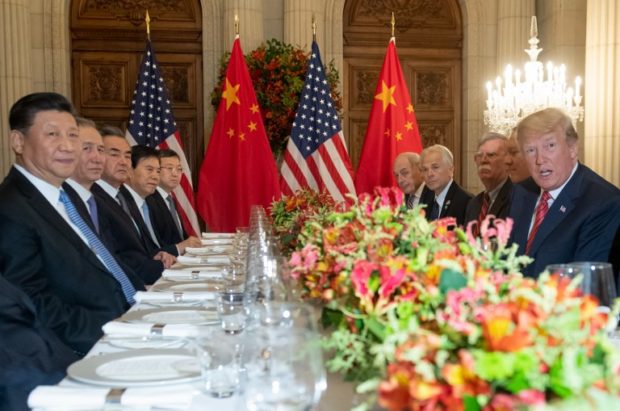
US President Donald Trump (R) and China’s President Xi Jinping (L) along with members of their delegations, hold a dinner meeting at the end of the G20 Leaders’ Summit in Buenos Aires, on December 01, 2018. (Photo by SAUL LOEB / AFP)
BUENOS AIRES — The United States and China agreed Saturday in a long-anticipated summit to hold off on new tariffs after January 1, Chinese state media said following a months-long trade war.
The China Daily and Chinese international broadcaster CGTN both said President Donald Trump and his counterpart Xi Jinping agreed to halt tariffs “after January 1.”
Trump had threatened starting on New Year’s Day to raise tariffs from 10 to 25 percent on $200 billion worth of Chinese imports.
The White House did not immediately comment on the outcome of the meeting on the sidelines of the G20 summit in Buenos Aires, but senior Trump adviser Larry Kudlow said that it went “very well.”
Trade tensions between the United States and China have soared since the start of the year, with Trump already slapping $250 billion worth of tariffs.
Trump — a staunch defender of US manufacturing in his “America First” policy — has assailed China for trading practices and especially over its alleged theft of foreign technology.
The Trump administration has demanded that China end a requirement that foreign companies team up with local partners, a key way in which Beijing is accused of seizing US know-how to promote its own industry.
China has denied the charges but promised ahead of the summit to do more to welcome foreign imports.
RELATED STORIES
Survey: US companies in China hurt by tariff war